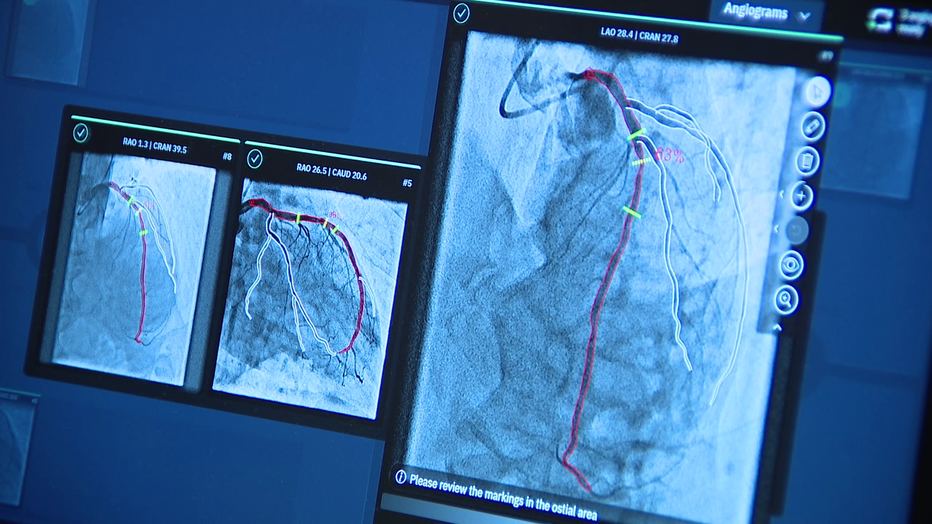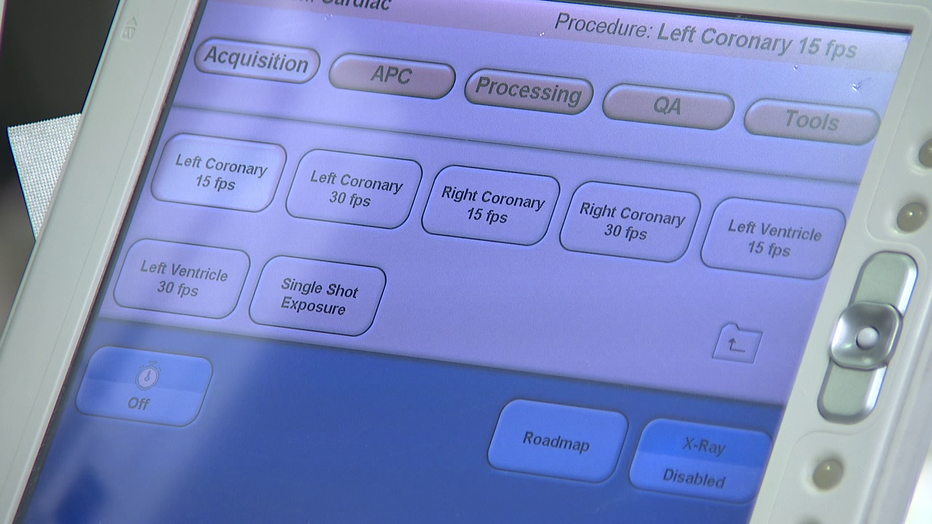Bay Area hospital using AI technology for new cardiac procedure
AI technology used for heart surgery
AdventHealth Zephyrhills is using a new procedure to help prevent heart attacks and identify heart blockages. It marks the hospital's first procedure using artificial intelligence.
ZEPHYRHILLS, Fla. - Artificial intelligence is leading to a lot of changes in technology and in healthcare. AdventHealth Zephyrhills is now using AI in a new procedure to help prevent heart attacks and identify blockages in the arteries that lead to heart disease.
Nurse Debbie Moore has spent nearly 30 years working in the Cath Lab at AdventHealth Zypherhills. In that time, she’s seen an evolution of techniques and technology aimed at identifying and treating heart problems. Now, she’s part of the first Advent team in Florida to use a procedure powered by artificial intelligence.
The team is now using a program called CathWorks. It uses AI to measure blockages in the coronary arteries, blockages which can lead to heart attacks and heart disease.

"This actually gives us images where before we would only get a number on a screen," she explained. "I found that fascinating because that really gives us an overall clear picture."
The program shows doctors exactly what percentage an artery is blocked, which then determines whether the patient needs a stent. When it comes to blockages, they’re dealing in millimeters, with high stakes.
"You don't want to put a stent in where it's not needed. And on the flip side of that, you don't want to miss a blockage that potentially could be a problem down the road for a patient and then they have a massive heart attack," said Moore.
READ: Wegovy weight-loss medication gets FDA approval for use as heart disease prevention drug
Cardiologist Dr. Ghazanfar Khadim says the program replaces the invasive procedure traditionally used to measure blockages, eliminating the need for blood thinners and invasive wires.
"So that is one of the main important things that we can use this technology much more often and much more safely," said Khadim.
Overall, he said it makes it easier on patients and substantially lowers their risk, while providing validating data for cardiologists.

"I think it's giving me extra clarity. OK, those borderline lesions that we either need to fix or not fix. It gives me a second opinion on (whether) what we are doing is actually right. So I think it's a significant benefit," said Khadim.
The team has had the program for a month and used it in about 30 procedures. They said it's already led to better outcomes for patients.
Khadim notes that implementing AI is a benefit, but he doesn’t solely rely on the technology. They still have to use their expertise and training to make the right call.
"AI cannot tell us what to do. We have to input the data. So the biggest, the biggest challenge will be how we input the data. If the data is input incorrectly, it is not going to be able to give us the right answer," said Khadim.
SIGN UP: Click here to sign up for the FOX 13 daily newsletter
WATCH FOX 13 NEWS

